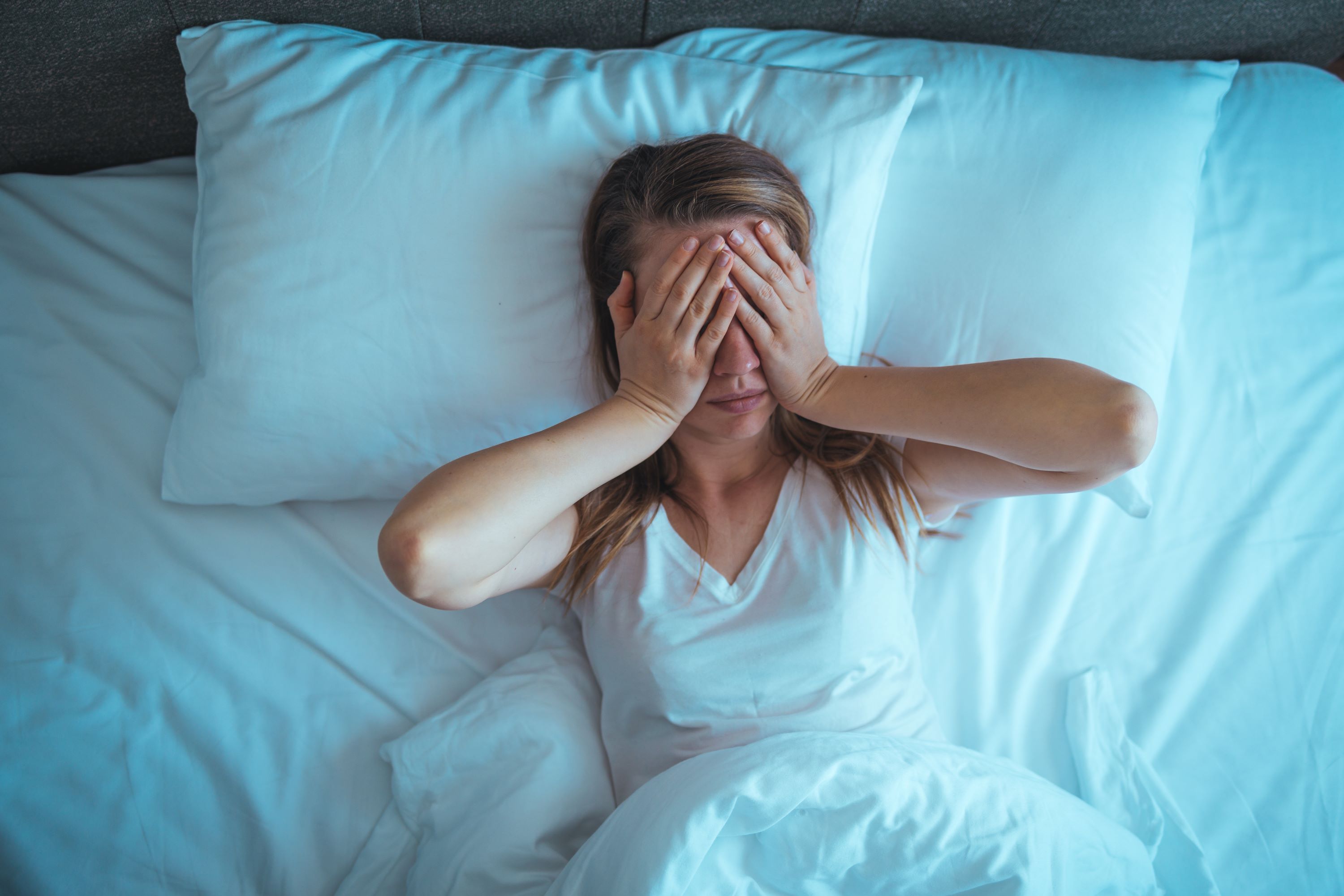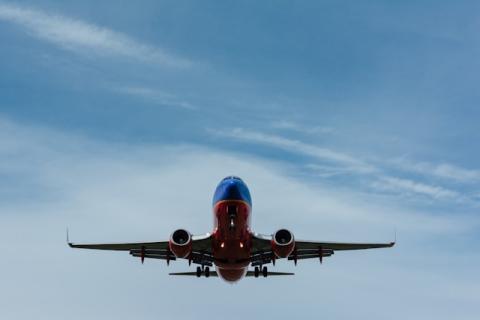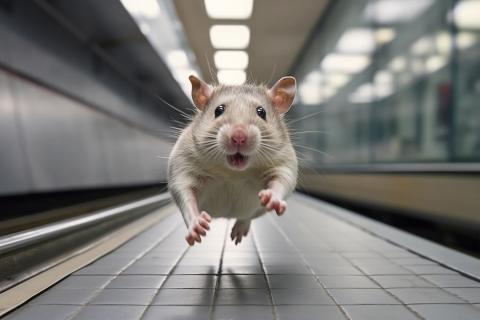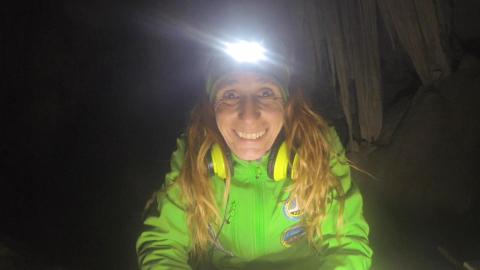What is jet lag?
Jet lag is a temporary disruption of the body’s functions following a rapid flight across multiple time zones. The circadian system needs time to adjust to the new light-dark cycle and environment at the destination. This misalignment can cause symptoms like sleep disturbances, daytime fatigue, gastrointestinal issues, and reduced physical and mental performance.
Does jet lag regulate itself?
The circadian clock generally adjusts in a few days. "As a rule of thumb, the duration of natural alignment is 0.5 days per time-zone crossed in a westerly direction [...] and 1 day per time zone crossed in an easterly direction," states a 2021 scientific article on managing travel fatigue and jet lag in elite athletes. It is also known that this time varies from person to person. “Some people need more or less time to adapt. At the molecular level, we don’t know exactly what regulates this,” explains María Casanova, a junior principal investigator at the Spanish National Cancer Research Center (CNIO), to SMC Spain.
How can we counteract the symptoms of jet lag?
"We don't have much hard evidence" on this topic, warns Christa Janse van Rensburg, the lead author of the 2021 study, to SMC Spain. It’s difficult to conduct studies with people on real trips, so “many of the studies are [carried out] on animals to [study] the circadian rhythm and those in humans are done in labs where they simulate travel,” explains the scientist, who heads the Sports Medicine section at the University of Pretoria (South Africa).
In the article that was previously mentioned and another from 2020, the researcher lists possible interventions for athletes who aim to perform at the highest level and avoid injuries after long trips. Janse van Rensburg asserts that these recommendations can also be useful for other types of travelers.
Light
“Light is the most important [factor]” for adjusting the internal clock, says the scientist. “When you fly west you will usually need light exposure in the pm - in the afternoon, early evening, and the other way around for when you go east, then you will need light exposure mostly in the morning,” she notes. This factor can be considered when planning the trip and choosing the flight schedule. If traveling west, it's better to land in the late afternoon or evening, while for eastward travel, a morning arrival is preferable. Artificial light, lenses, or a sleep mask can also be used if sunlight doesn’t match the desired exposure.
Sleep
Preserving sleep and rest is obviously very important, even before traveling. –The so-called Sleep banking involves sleeping more than usual to build up a 'reserve' before a trip that will deprive us of sleep—.
Taking a nap can also help. “You don't want to have it too close to bedtime,” suggests Janse van Rensburg. A strategic short nap (about 20 minutes) or a long one (90 minutes) can be more efficient than a 40-minute nap that doesn’t go through all sleep phases, adds the physician.
Food and Stimulants
Use common sense when eating, drinking, and consuming stimulants like caffeine, says Janse van Rensburg. For instance, avoid heavy, greasy food if you need to stay active upon arrival; don't drink two espressos if you need to sleep; stay hydrated but not to the point of needing to wake up at night, which would affect your sleep.
Medications: melatonin or sedatives
A 2002 Cochrane review concluded that melatonin is “remarkably effective” in preventing or reducing jet lag, and occasional short-term use “appears to be safe.” This review recommends its use in adult travelers flying “across five or more time zones, particularly in an easterly direction, and especially if they have experienced jet lag on previous journeys.”
“Melatonin can do two things: it can put you to sleep, and it can also shift your [internal] clock,” explains Janse van Rensburg. A lower dose is required if used in the morning to adjust the internal clock, than if used at night to help sleep.
Regarding sedatives, as a physician, the researcher recommends avoiding their use during a trip –or the use of stimulants– if they have never been used before. If they are necessary to help a nervous person sleep on the plane, she recommends short-duration sedatives in low doses —also to avoid prolonged sleep and immobility, which could increase the risk of venous thrombosis.
Most hypnotic medications “do not address the underlying desynchrony, and it is usually recommended to use them for short stopovers when adaptation is undesirable in view of the rapid return to the departure time zone,” states a 2018 article. The study suggests that light exposure, the primary factor controlling the circadian system, should be considered alongside drug use.
When should I set my watch to my destination time?
This advice is often heard, but there are no studies to back it up. Among researchers studying jet lag in athletes, Janse van Rensburg estimates that two-thirds favor leaving the watch on the origin time during the flight.
Does jet lag have long-term health consequences?
Yes, several studies indicate that it does. The circadian clock is involved in multiple physiological processes, such as metabolism, the immune system and the control of the cardiovascular system. Therefore, jet lag, when recurrent or chronic, has health effects that have been observed in animals or people who work night shifts. In 2019, the World Health Organization's International Agency for Research on Cancer classified work that alters circadian rhythms as "probably carcinogenic", with “sufficient” evidence in animals but “limited” evidence in humans.
At CNIO, María Casanova studies changes in the immune system cells of various samples from flight crew members collected over four years. “They can have less effective immune cells when it comes to fighting an infection or tumor, or to recognizing the presence of a tumor,” says the researcher. In the case of the crew, it is not known if these changes are linked to the radiation they experience during flight hours, and/or to their circadian disruptions. To separate these factors, animal studies need to be conducted, or else data from crew members could be compared with those of night workers—who have circadian rhythm disruptions but are not exposed to the same radiation as the crew—, explains Casanova.
“What we’ve seen in mice is that it is not so important whether you work at night or during the day, but rather that rest happens: that you alternate periods of wakefulness and activity with periods of rest,” regularly, adds the researcher. For example, a person returning home in the morning from a night shift “needs to wear a sleep mask and close all the windows so their body’s molecular clock understands it is night”, and sleep the hours their body needs.




